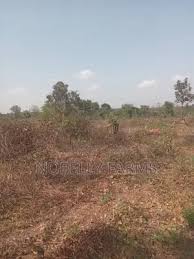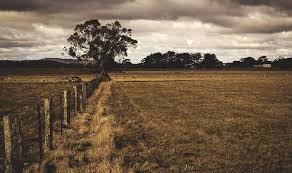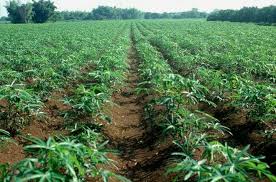![]()
If you’ve landed on this article page, you’re probably searching for a
good business idea—an idea that’s light on the pocket but heavy on
returns, promising both a fulfilling journey and potential profit.
|
How
to start a lucrative Arable Land Rental Business in Nigeria
Leasing land for farming is a common practice in Nigeria,
particularly, in rural areas where land ownership is often
communal. This allows farmers to access the land they need to
cultivate crops without having to purchase it outright.
Leasing land for farming remains an important option for many
Nigerian farmers who lack the resources or capital required to
purchase their land. It is flexible to run without spending your
whole time.
Like every business, the higher the capital, the more you can
do. A plot of farmland will cost you between N400,000 and
N450,000, which is the buyout price. Aside from that, the only
money you will spend is on weeding and insemination, which is
about N50,000.
But ensuring that you’re collecting fair rent on your land could
make a significant difference to your finances, particularly as
you head into retirement. Here, I’ll lay out seven things all
landowners should do to ensure they’re getting a fair price for
their land.
1. Know How Farmland Value Is Calculated
Obviously, one of the biggest determinants of your land’s value
is how much it produces: Grow more corn, earn more cash. Of
course, the market price of whatever you’re growing also has an
impact (and if everyone grows more corn, the price might go
down, so you might not make as much as you expected).
As you determine a fair rental price for your land, remember
that its yield will have a major impact on what’s fair.
2. Know the Condition of Your Land
When you sell a car, you know that make, model, and condition
have a huge impact on the price you can get. The same is true
for land: You want to know the condition of your soil, the
effect of its general shape, and its flood risk – things you may
have accepted over the years without considering their impact on
value.
3. Know How to Take Care of Your Land
Healthy soil produces more than depleted soil, so it’s important
to track your soil’s condition and, ultimately, take steps to
maintain its fertility. If you don’t, yield will decrease over
time, resulting in less crop and less income from the land.
As a non-farming landowner, you have to think about fertility
differently than you did as an active farmer:
Your renter should be the one following a soil management plan
to replenish the nutrients crops leech from the soil. Your job
is to verify that this is being done.
Fertilizer is a farmer’s second biggest expense after seed. If
money is tight, your farmer may be tempted to skip or skimp on
fertilizer to save money. Be aware of this.
You can’t evaluate the health of your soil just by looking. If a
farmer isn’t fertilizing properly, you won’t be able to tell at
first, and when you’re not out there every day, you won’t know
the difference right away. But over time, the effects could be
devastating.
Given the importance of maintaining soil fertility, it’s crucial
to know how to make sure your renter is taking care of the land.
The key here is to remember that the only way to maintain your
land for the long term is to make sure it’s fertilized properly.
Now that you won’t be the one in charge of day-to-day
operations, you have to find ways to check your renter’s work.
4. Do Your Homework When Choosing a Farmer
As a landlord, you should be able to trust that the farmer
working your land is taking care of it. As you seek a tenant,
it’s best to:
Interview multiple farmers. You wouldn’t send your kids to the
first daycare provider you found, and you shouldn’t entrust your
land to the first farmer you talk to. Talk to multiple people to
get an idea of who you’re comfortable with and to make sure you
trust the person you ultimately choose.
Check references. Remember, this person’s actions will determine
the long-term value of your land, which is an investment asset.
Make sure their past landlords have had positive experiences.
Don’t equate high price with good value. One reason it’s
important to know your land’s value is that the highest rent
offer may not be your best deal. One way a farmer can pay you
more is by skimping on expenses like fertilizer. While that may
earn you more in the short term, it can decimate your long-term
earning power, which can be devastating in retirement. On the
other hand, farmers running large-scale operations can offer
better prices because of economies of scale. The point is, you
have to know what you’re offering and who you’re offering it to.
5. Use a Formal Lease
Even in 2019, most farmland is rented without formal paperwork.
That’s not great for the same reasons it’s not great to enter
into any legal relationship without a contract defining its
terms.
6. Get General Liability Insurance
If you’re making money from land rental, you’re technically a
business owner, and as such, you have certain liability
exposures that could end up costing you. General liability
insurance is an easy and important way to safeguard yourself,
and your investment in farmland, against these risks. It is the
first layer of protection for catastrophic expenses that may
occur due to injury or wrongful death and covers legal and
medical costs associated with these events.
Obviously, lack of insurance coverage does not relieve you of
financial responsibility for accidents that happen on your land.
Without insurance, you would be forced to fund these significant
costs through personal means. General liability insurance is
usually inexpensive, and it’s worth every penny.
7. Keep a Long-Term Perspective
Farmland is an incredibly valuable asset. Unlike a company’s
stock, you know that farmland will have intrinsic value for as
long as people are on this planet eating food. As you think
about renting your land, keep this long view in mind.
A long view means not only renting to a farmer who will
replenish nutrients, as I mentioned above, but also one who will
maintain filter strips between your land and waterways and one
whose techniques prevent erosion.
Technology improvements mean that yields steadily increase, so
if you’re lucky enough to own farmland, following these seven
steps can help ensure that you get the best possible return on
that investment – even when you’re no longer the one actually
working the soil.
Get our training guide on how to start a lucrative Arable Land
Rental Business in Nigeria. This
guide will provide an in-depth look at what it means to be an
Arable Land Owner , the key roles and responsibilities, how they
get paid, and essential do's and don'ts.
|







